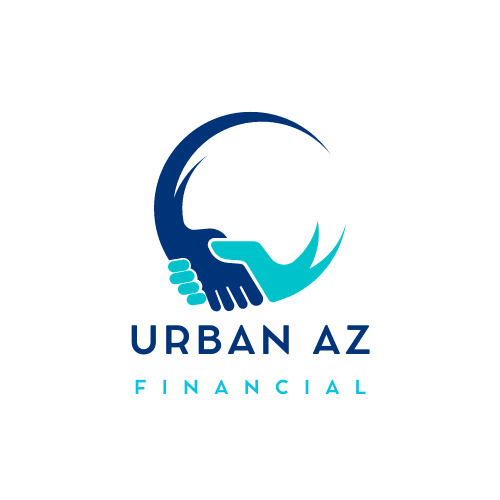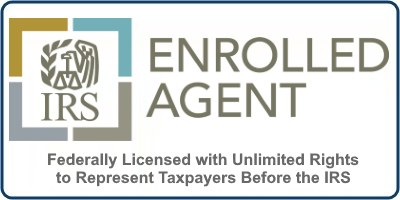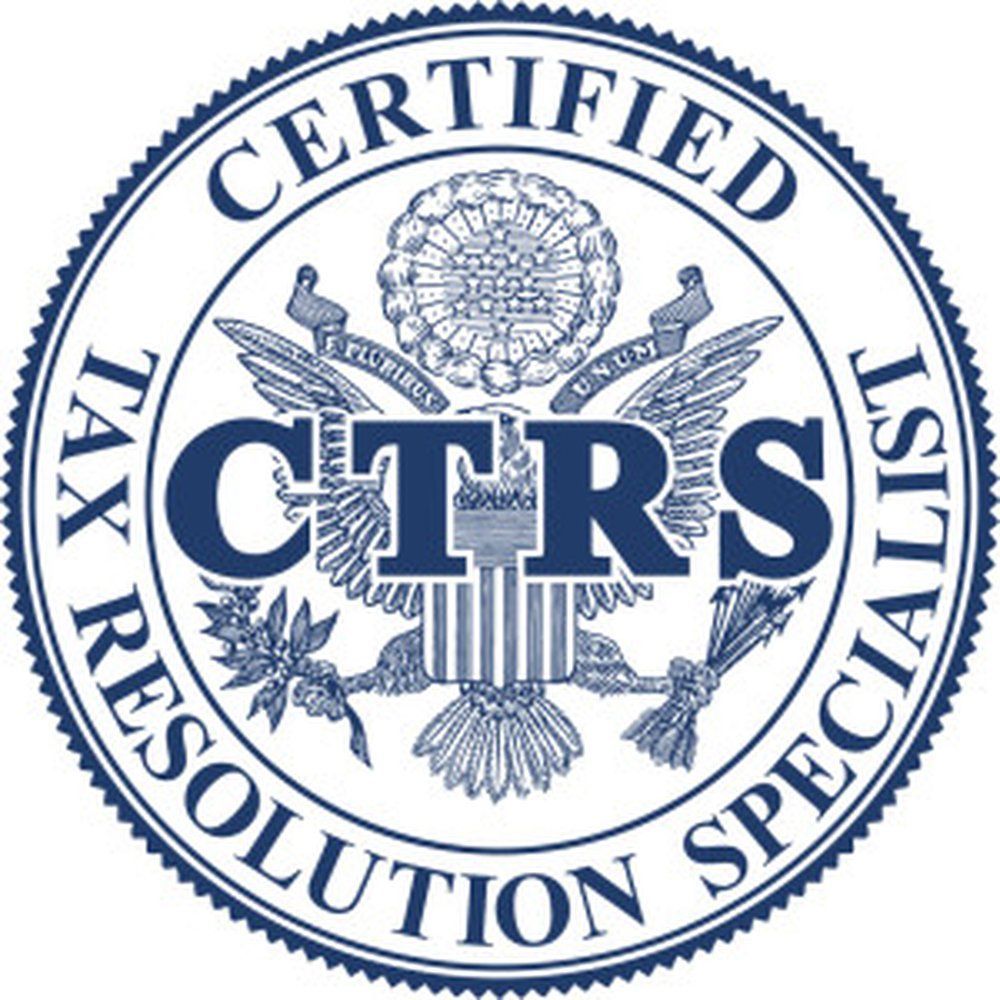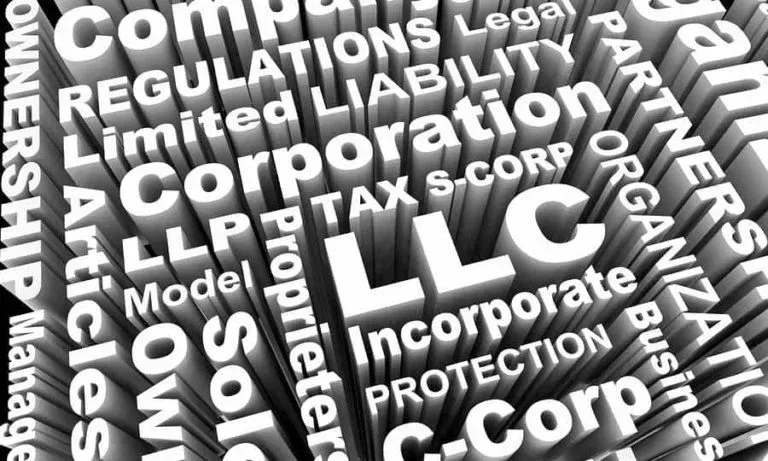Beneficial Ownership Information Report deadline is January 1st, 2025. Failure to file before this deadline will result in penalties of up to $500 per day.
"BOI Reporting is Now Mandatory – Avoid Fines & Stay Compliant!"
(We can file for you.
Only $99)
Corporate Transparency Act
(CTA)
(FinCEN)
Benefit Ownership Information
(BOI)
Reporting Requirements For LLC'S
"Who Needs to File? Find Out if Your Business is Affected by the New BOI Rules."
-
"Avoid $500+ Daily Penalties – Get Your BOI Report Filed on Time!"
"What is BOI Reporting? Simple, Straightforward, and Explained for Business Owners."
"We Handle BOI Compliance for You – Hassle-Free and Affordable."
"Filing Your BOI Report is Quick and Easy – Let Us Do It for You!"
"Confused About BOI? Get Expert Guidance & File with Confidence."
"Don't Risk IRS & FinCEN Penalties – File Your BOI Report Now!"
Initial Beneficial Ownership Information Form
IMPORTANT INFORMATION
If your LLC was formed before January 1st, 2024 you are required to register all your entities (LLC's) with the federal government (FinCEN)
by January 1st, 2025 or you could be fined
$500 per day and or up to 2 years of imprisonment.
If your LLC was formed in 2024, you have 90 days from your LLC approval date to register all your entities (LLC's) with the federal government (FinCEN) or you could be fined $500 per day and or up to 2 years of imprisonment.
Any LLC Formed after January 1st, 2025, you have up to 30 days to register all your entities (LLC's) with the federal government (FinCEN)or you could be fined
$500 per day and or up to 2 years of imprisonment.
What information do companies need to report?
Reporting companies need to report just a few pieces of information about themselves and their beneficial owners—and in some cases, their company applicants—such as name, address, and date of birth. More information is available below:
Save Time
Earn More
Grow Faster
Friendly Support
The easy way to comply with the LLC BOI requirements:
Have Urban AZ Financial
File & Report for you.
$99 Complete Per LLC
1.
2.
Decide how to send or deliver your information or documents
3.
Receive Invoice and Pay Urban AZ Financial Filing & Reporting Fee - $99
4.
BOI Report Submitted! Get a downloaded transcript of your BOI report sent to your email.
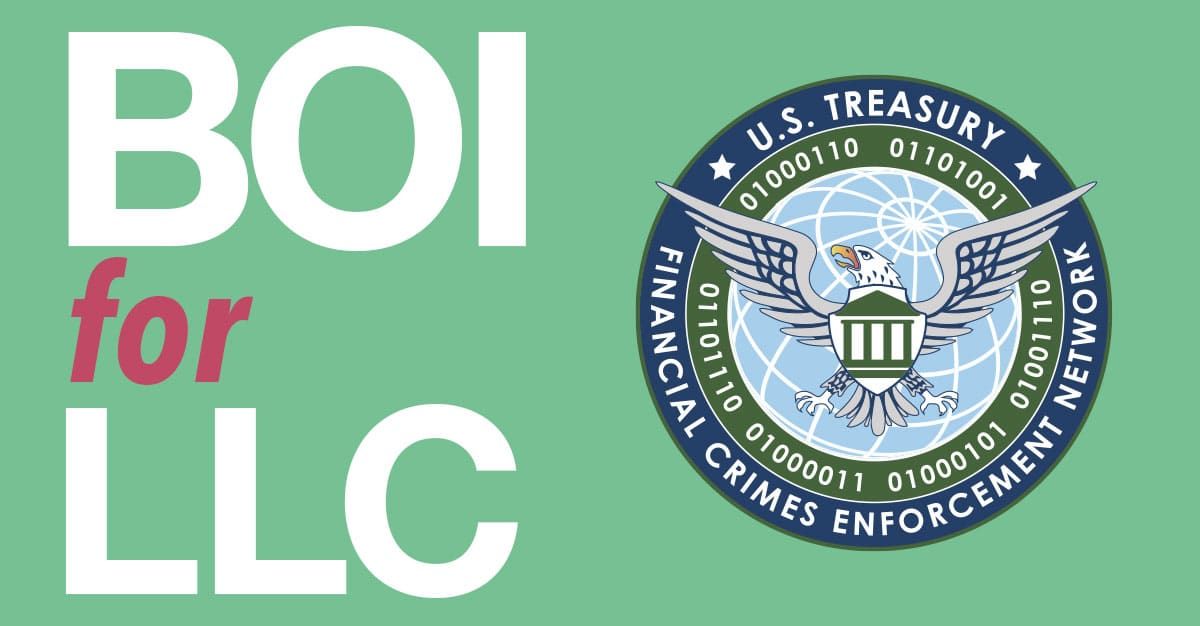
What information will a reporting company (LLC) have to report about its beneficial owners?
For each individual who is a beneficial owner, a reporting company will have to provide:
The individual’s name;
Date of birth;
Residential address; and
An identifying number from an acceptable identification document such as a passport or U.S. driver’s license, and the name of the issuing state or jurisdiction of identification document (for examples of acceptable identification, see Question F.5).
The reporting company will also have to report an image of the identification document used to obtain the identifying number in item 4.
What information will a reporting company (LLC) have to report about its company applicants?
For each individual who is a company applicant, a reporting company will have to provide:
The individual’s name;
Date of birth;
Address; and
An identifying number from an acceptable identification document such as a passport or U.S. driver’s license, and the name of the issuing state or jurisdiction of identification document (for examples of acceptable identification, see Question F.5).
The reporting company will also have to report an image of the identification document used to obtain the identifying number in item 4.
If the company applicant works in corporate formation—for example, as an attorney or corporate formation agent—then the reporting company must report the company applicant’s business address.
Otherwise, the reporting company must report the company applicant’s residential address.
What penalties do individuals face for violating BOI reporting requirements?
As specified in the Corporate Transparency Act, a person who willfully violates the BOI reporting requirements may be subject to civil penalties of up to $500 for each day that the violation continues.
However, this civil penalty amount is adjusted annually for inflation.
As of the time of publication of this FAQ, this amount is $591.
A person who willfully violates the BOI reporting requirements may also be subject to criminal penalties of up to two years imprisonment and a fine of up to $10,000.
Potential violations include willfully failing to file a beneficial ownership information report, willfully filing false beneficial ownership information, or willfully failing to correct or update previously reported beneficial ownership information.
FAQs About Beneficial Ownership (BOI) Filing
FinCEN has prepared the following Frequently Asked Questions (FAQs) in response to inquiries received relating to the Beneficial Ownership Information Reporting Rule and Beneficial Ownership Information Access and Safeguards Rule.
These FAQs are explanatory only and do not supplement or modify any obligations imposed by statute or regulation.
What is beneficial ownership information?
Beneficial ownership information refers to identifying information about the individuals who directly or indirectly own or control a company.
Is beneficial ownership information reported to FinCEN accessible under the Freedom of Information Act (FOIA)?
No. Beneficial ownership information reported to FinCEN is exempt from disclosure under the Freedom of Information Act (FOIA).
Under the Corporate Transparency Act, who can access beneficial ownership information?
In accordance with the Corporate Transparency Act, FinCEN may permit access to beneficial ownership information to:
- Federal agencies engaged in national security, intelligence, or law enforcement activity;
- State, local, and Tribal law enforcement agencies with court authorization;
- Officials at the Department of the Treasury;
- Foreign law enforcement agencies, judges, prosecutors, and other authorities that submit a request through a U.S. Federal agency to obtain beneficial ownership information for authorized activities related to national security, intelligence, and law enforcement;
- Financial institutions with customer due diligence requirements under applicable law (in order to facilitate compliance with those requirements); and
- Federal functional regulators or other appropriate regulatory agencies that supervise or assess financial institutions with access to beneficial ownership information (in order to supervise such financial institutions’ compliance with customer due diligence requirements).
FinCEN published the rule that will govern access to and protection of beneficial ownership information on December 22, 2023. Beneficial ownership information reported to FinCEN is stored in a secure, non-public database using rigorous information security methods and controls typically used in the Federal government to protect non-classified yet sensitive information systems at the highest security level. FinCEN will continue to work closely with those authorized to access beneficial ownership information to ensure that they understand their roles and responsibilities in using the reported information only for authorized purposes and handling in a way that protects its security and confidentiality.
Who is a beneficial owner of a reporting company?
A beneficial owner is an individual who either directly or indirectly: (1) exercises substantial control over the reporting company, or (2) owns or controls at least 25% of the reporting company’s ownership interests. Because beneficial owners must be individuals (i.e., natural persons), trusts, corporations, or other legal entities are not considered to be beneficial owners. However, in specific circumstances, information about an entity may be reported in lieu of information about a beneficial owner
What is substantial control?
An individual can exercise substantial control over a reporting company in four different ways. If the individual falls into any of the categories below, the individual is exercising substantial control:
- The individual is a senior officer (the company’s president, chief financial officer, general counsel, chief executive officer, chief operating officer, or any other officer who performs a similar function).
- The individual has authority to appoint or remove certain officers or a majority of directors (or similar body) of the reporting company.
- The individual is an important decision-maker for the reporting company.
- The individual has any other form of substantial control over the reporting company as explained further in FinCEN’s Small Entity Compliance Guide
Who is a company applicant of a reporting company?
Only reporting companies created or registered on or after January 1, 2024, will need to report their company applicants.
A company that must report its company applicants will have only up to two individuals who could qualify as company applicants:
The individual who directly files the document that creates or registers the company; and
If more than one person is involved in the filing, the individual who is primarily responsible for directing or controlling the filing.
Which reporting companies are required to report company applicants?
Not all reporting companies have to report their company applicants to FinCEN.
A reporting company must report its company applicants only if it is either a:
- Domestic reporting company created in the United States on or after January 1, 2024; or
- Foreign reporting company first registered to do business in the United States on or after January 1, 2024.
A reporting company does not have to report its company applicants if it is either a:
- Domestic reporting company created in the United States before January 1, 2024; or
-
- Foreign reporting company first registered to do business in the United States before January 1, 2024.
Is my accountant or lawyer considered a company applicant?
An accountant or lawyer could be a company applicant, depending on their role in filing the document that creates or registers a reporting company. In many cases, company applicants may work for a business formation service or law firm.
An accountant or lawyer may be a company applicant if they directly filed the document that created or registered the reporting company. If more than one person is involved in the filing of the creation or registration document, an accountant or lawyer may be a company applicant if they are primarily responsible for directing or controlling the filing.
For example, an attorney at a law firm that offers business formation services may be primarily responsible for overseeing preparation and filing of a reporting company’s incorporation documents.
A paralegal at the law firm may directly file the incorporation documents at the attorney’s request. Under those circumstances, the attorney and the paralegal are both company applicants for the reporting company.
The company applicants of a reporting company include the individual “primarily responsible for directing the filing of the creation or registration document.” What makes an individual “primarily responsible” for directing such a filing?
At most, two individuals need to be reported as company applicants:
the person who directly files the document with a secretary of state or similar office, and
if more than one person is involved in the filing of the document, the person who is primarily responsible for directing or controlling the filing.
For the purposes of determining who is a company applicant, it is not relevant who signs the creation or registration document, for example, as an incorporator. To determine who is primarily responsible for directing or controlling the filing of the document, consider who is responsible for making the decisions about the filing of the document, such as how the filing is managed, what content the document includes, and when and where the filing occurs. The following three scenarios provide examples.
Scenario 1: Consider an attorney who completes a company creation document using information provided by a client, and then sends the document to a corporate service provider for filing with a secretary of state. In this example:
- The attorney is the company applicant who is primarily responsible for directing or controlling the filing because they prepared the creation document and directed the corporate service provider to file it.
- The individual at the corporate service provider is the company applicant who directly filed the document with the secretary of state.
Scenario 2: If the attorney instructs a paralegal to complete the preparation of the creation document, rather than doing so themself, before directing the corporate service provider to file the document, the outcome remains the same: the attorney and the individual at the corporate service provider who files the document are company applicants. The paralegal is not a company applicant because the attorney played a greater role than the paralegal in making substantive decisions about the filing of the document.
Scenario 3: If the client who initiated the company creation directly asks the corporate service provider to file the document to create the company, then the client is primarily responsible for directing or controlling the filing, and the client should be reported as a company applicant, along with the individual at the corporate service provider who files the document.
If an individual used an automated incorporation service, such as through a website or online platform, to file the creation or registration document for a reporting company, who is the company applicant?
If a business formation service only provides software, online tools, or generally applicable written guidance that are used to file a creation or registration document for a reporting company, and employees of the business service are not directly involved in the filing of the document, the employees of such services are not company applicants. For example, an individual may prepare and self-file documents to create the individual’s own reporting company through an automated incorporation service. In this case, this reporting company reports only that individual as a company applicant.
Will a reporting company need to report any other information in addition to information about its beneficial owners?
Yes. The information that needs to be reported, however, depends on when the company was created or registered.
- If a reporting company is created or registered on or after January 1, 2024, the reporting company will need to report information about itself, its beneficial owners, and its company applicants.
-
- If a reporting company was created or registered before January 1, 2024, the reporting company only needs to provide information about itself and its beneficial owners. The reporting company does not need to provide information about its company applicants.
What information will a reporting company have to report about itself?
A reporting company will have to report:
Its legal name;
Any trade names, “doing business as” (d/b/a), or “trading as” (t/a) names;
The current street address of its principal place of business if that address is in the United States (for example, a U.S. reporting company’s headquarters), or, for reporting companies whose principal place of business is outside the United States, the current address from which the company conducts business in the United States (for example, a foreign reporting company’s U.S. headquarters);
Its jurisdiction of formation or registration; and
Its Taxpayer Identification Number (or, if a foreign reporting company has not been issued a TIN, a tax identification number issued by a foreign jurisdiction and the name of the jurisdiction).
A reporting company will also have to indicate whether it is filing an initial report, or a correction or an update of a prior report.
What information will a reporting company have to report about its beneficial owners?
For each individual who is a beneficial owner, a reporting company will have to provide:
The individual’s name;
Date of birth;
Residential address; and
An identifying number from an acceptable identification document such as a passport or U.S. driver’s license, and the name of the issuing state or jurisdiction of identification document .
The reporting company will also have to report an image of the identification document used to obtain the identifying number in item 4.
What information will a reporting company have to report about its company applicants?
For each individual who is a company applicant, a reporting company will have to provide:
The individual’s name;
Date of birth;
Address; and
An identifying number from an acceptable identification document such as a passport or U.S. driver’s license, and the name of the issuing state or jurisdiction of identification document .
The reporting company will also have to report an image of the identification document used to obtain the identifying number in item 4.
If the company applicant works in corporate formation—for example, as an attorney or corporate formation agent—then the reporting company must report the company applicant’s business address. Otherwise, the reporting company must report the company applicant’s residential address.
Is there a requirement to annually report beneficial ownership information?
No. There is no annual reporting requirement. Reporting companies must file an initial BOI report and updated or corrected BOI reports as needed.
Does a reporting company have to report information about its parent or subsidiary companies?
No, though if a special reporting rule applies, the reporting company may report a parent company’s name instead of beneficial ownership information. A reporting company usually must report information about itself, its beneficial owners, and, for reporting companies created or registered on or after January 1, 2024, its company applicants.
However, under a special reporting rule, a reporting company may report a parent company’s name in lieu of information about its beneficial owners if its beneficial owners only hold their ownership interest in the reporting company through the parent company and the parent company is an exempt entity.
Can a reporting company report a P.O. box as its current address?
No. The reporting company address must be a U.S. street address and cannot be a P.O. box.
What residential address should be reported if a reporting company is required to a report an individual’s residential address, but that individual does not have a permanent residential residence?
The residential address that is current at the time of filing should be reported to FinCEN. An updated report should be submitted within 30 calendar days if the address, or any other information previously reported, changes.
What type of tax identification number should be reported by a reporting company that is disregarded for U.S. tax purposes?
An entity that is disregarded for U.S. tax purposes—a “disregarded entity”—is not treated as an entity separate from its owner for U.S. tax purposes. Instead of a disregarded entity being taxed separately, the entity’s owner reports the entity’s income and deductions as part of the owner’s federal tax return.
A disregarded entity must report beneficial ownership information (BOI) to FinCEN if it is a reporting company (see Question C.1). Such a reporting company must provide one of the following types of taxpayer identification numbers (TINs) on its BOI report if it has been issued a TIN: an Employer Identification Number (EIN); a Social Security Number (SSN); or an Individual Taxpayer Identification Number (ITIN). If a foreign reporting company has not been issued a TIN, it must provide a tax identification number issued by a foreign jurisdiction and the name of that jurisdiction.
Consistent with rules of the Internal Revenue Service (IRS) regarding the use of TINs, different types of tax identification numbers may be reported for disregarded entities under different circumstances:
- If the disregarded entity has its own EIN, it may report that EIN as its TIN. If the disregarded entity does not have an EIN, it is not required to obtain one to meet its BOI reporting requirements so long as it can instead provide another type of TIN or, if a foreign reporting company not issued a TIN, a tax identification number issued by a foreign jurisdiction and the name of that jurisdiction.
- If the disregarded entity is a single-member limited liability company (LLC) or otherwise has only one owner that is an individual with an SSN or ITIN, the disregarded entity may report that individual’s SSN or ITIN as its TIN.
- If the disregarded entity is owned by a U.S. entity that has an EIN, the disregarded entity may report that other entity’s EIN as its TIN.
- If the disregarded entity is owned by another disregarded entity or a chain of disregarded entities, the disregarded entity may report the TIN of the first owner up the chain of disregarded entities that has a TIN as its TIN.
As explained above, a disregarded entity that is a reporting company must report one of these tax identification numbers when reporting beneficial ownership information to FinCEN
Are reporting companies required to report the addresses of beneficial owners or company applicants that participate in an Address Confidentiality Program (ACP)?
FinCEN is mindful of the critical privacy interests protected by ACPs. Reporting companies that are required to report a beneficial owner or company applicant registered with a State’s ACP should report to FinCEN the ACP address that the State provided to the individual. As a best practice, individuals registered with a State ACP may consider retaining documentation to demonstrate that they participate in an ACP.
When do I have to file an initial beneficial ownership information report with FinCEN?
If your company existed before January 1, 2024, it must file its initial beneficial ownership information report by January 1, 2025.
If your company was created or registered on or after January 1, 2024, and before January 1, 2025, then it must file its initial beneficial ownership information report within 90 calendar days after receiving actual or public notice that its creation or registration is effective. Specifically, this 90-calendar day deadline runs from the time the company receives actual notice that its creation or registration is effective, or after a secretary of state or similar office first provides public notice of its creation or registration, whichever is earlier.
If your company was created or registered on or after January 1, 2025, it must file its initial beneficial ownership information report within 30 calendar days after receiving actual or public notice that its creation or registration is effective.
Can a parent company file a single BOI report on behalf of its group of companies?
No. Any company that meets the definition of a reporting company and is not exempt is required to file its own BOI report.
What are some likely triggers for needing to update a beneficial ownership information report?
The following are some examples of the changes that would require an updated beneficial ownership information report:
- Any change to the information reported for the reporting company, such as registering a new business name.
- A change in beneficial owners, such as a new CEO, or a sale that changes who meets the ownership interest threshold of 25 percent.
-
- Any change to a beneficial owner’s name, address, or unique identifying number previously provided to FinCEN. If a beneficial owner obtained a new driver’s license or other identifying document that includes a changed name, address, or identifying number, the reporting company also would have to file an updated beneficial ownership information report with FinCEN, including an image of the new identifying document.
What should I do if I learn of an inaccuracy in a report?
If a beneficial ownership information report is inaccurate, your company must correct it no later than 30 days after the date your company became aware of the inaccuracy or had reason to know of it. This includes any inaccuracy in the required information provided about your company, its beneficial owners, or its company applicants.
What happens if a reporting company does not report beneficial ownership information to FinCEN or fails to update or correct the information within the required timeframe?
FinCEN is working hard to ensure that reporting companies are aware of their obligations to report, update, and correct beneficial ownership information. FinCEN understands this is a new requirement.
If you correct a mistake or omission within 90 days of the deadline for the original report, you may avoid being penalized. However, you could face civil and criminal penalties if you disregard your beneficial ownership information reporting obligations.
What happens if a reporting company does not report beneficial ownership information to FinCEN or fails to update or correct the information within the required timeframe?
FinCEN is working hard to ensure that reporting companies are aware of their obligations to report, update, and correct beneficial ownership information. FinCEN understands this is a new requirement.
If you correct a mistake or omission within 90 days of the deadline for the original report, you may avoid being penalized. However, you could face civil and criminal penalties if you disregard your beneficial ownership information reporting obligations.
What penalties do individuals face for violating BOI reporting requirements
As specified in the Corporate Transparency Act, a person who willfully violates the BOI reporting requirements may be subject to civil penalties of up to $500 for each day that the violation continues. However, this civil penalty amount is adjusted annually for inflation. As of the time of publication of this FAQ, this amount is $591.
A person who willfully violates the BOI reporting requirements may also be subject to criminal penalties of up to two years imprisonment and a fine of up to $10,000.
Potential violations include willfully failing to file a beneficial ownership information report, willfully filing false beneficial ownership information, or willfully failing to correct or update previously reported beneficial ownership information.
Who can be held liable for violating BOI reporting requirements?
Both individuals and corporate entities can be held liable for willful violations. This can include not only an individual who actually files (or attempts to file) false information with FinCEN, but also anyone who willfully provides the filer with false information to report.
Both individuals and corporate entities may also be liable for willfully failing to report complete or updated beneficial ownership information; in such circumstances, individuals can be held liable if they either cause the failure or are a senior officer at the company at the time of the failure.
Can an individual who files a report on behalf of a reporting company be held liable?
Yes. An individual who willfully files a false or fraudulent beneficial ownership information report on a company’s behalf may be subject to the same civil and criminal penalties as the reporting company and its senior officers.
ii. Can a beneficial owner or company applicant be held liable for refusing to provide required information to a reporting company?
Yes. As described above, an enforcement action can be brought against an individual who willfully causes a reporting company’s failure to submit complete or updated beneficial ownership information to FinCEN. This would include a beneficial owner or company applicant who willfully fails to provide required information to a reporting company.
Is a reporting company responsible for ensuring the accuracy of the information that it reports to FinCEN, even if the reporting company obtains that information from another party?
Yes. It is the responsibility of the reporting company to identify its beneficial owners and company applicants, and to report those individuals to FinCEN. At the time the filing is made, each reporting company is required to certify that its report or application is true, correct, and complete. Accordingly, FinCEN expects that reporting companies will take care to verify the information they receive from their beneficial owners and company applicants before reporting it to FinCEN.
What should a reporting company do if a beneficial owner or company applicant withholds information?
While FinCEN recognizes that much of the information required to be reported about beneficial owners and company applicants will be provided to reporting companies by those individuals, reporting companies are responsible for ensuring that they submit complete and accurate beneficial ownership information to FinCEN. Starting January 1, 2024, reporting companies will have a legal requirement to report beneficial ownership information to FinCEN.
Existing reporting companies should engage with their beneficial owners to advise them of this requirement, obtain required information, and revise or consider putting in place mechanisms to ensure that beneficial owners will keep reporting companies apprised of changes in reported information, if necessary. Beneficial owners and company applicants should also be aware that they may face penalties if they willfully cause a reporting company to fail to report complete or updated beneficial ownership information.
Persons considering creating or registering legal entities that will be reporting companies should take steps to ensure that they have access to the beneficial ownership information required to be reported to FinCEN, and that they have mechanisms in place to ensure that the reporting company is kept apprised of changes in that information.
What is a FinCEN identifier?
A “FinCEN identifier” is a unique identifying number that FinCEN will issue to an individual or reporting company upon request after the individual or reporting company provides certain information to FinCEN. An individual or reporting company may only receive one FinCEN identifier.
How can I use a FinCEN identifier?
When a beneficial owner or company applicant has obtained a FinCEN identifier, reporting companies may report the FinCEN identifier of that individual in the place of that individual’s otherwise required personal information on a beneficial ownership information report. An individual who is both a beneficial owner and a company applicant will receive only one FinCEN identifier.
A reporting company may report another entity’s FinCEN identifier and full legal name in place of information about its beneficial owners when three conditions are met: (1) the other entity obtains a FinCEN identifier and provides it to the reporting company; (2) the beneficial owners hold interests in the reporting company through ownership interests in the other entity; and (3) the beneficial owners of the reporting company and the other entity are the exact same individuals.
How do I request a FinCEN identifier?
Individuals may request a FinCEN identifier starting January 1, 2024, by completing an electronic web form at https://fincenid.fincen.gov. Individuals will need to provide their full legal name, date of birth, address, unique identifying number and issuing jurisdiction from an acceptable identification document, and an image of the identification document. After an individual submits this information, they will immediately receive a unique FinCEN identifier.
Reporting companies may request a FinCEN identifier by checking a box on the beneficial ownership information report upon submission. After the reporting company submits the report, the company will immediately receive a unique FinCEN identifier. If a reporting company wishes to request a FinCEN identifier after submitting its initial beneficial ownership report, it may submit an updated beneficial ownership information report requesting a FinCEN identifier, even if the company does not otherwise need to update its information.
Are FinCEN identifiers required?
No. An individual or reporting company is not required to obtain a FinCEN identifier.
Can a third-party service provider assist reporting companies by submitting required information to FinCEN on their behalf?
Yes. Reporting companies may use third-party service providers to submit beneficial ownership information reports. Third-party service providers will have the ability to submit the reports via FinCEN’s BOI E-Filing website or an Application Programming Interface (API). To request the API technical specifications, use FinCEN’s contact form (https://www.fincen.gov/contact). Please do the following when submitting your inquiry: (1) select the topic associated with Beneficial Ownership (BO) / Corporate Transparency Act (CTA); (2) select the subject associated with API requests; (3) in the message body, indicate the nature of your API-related inquiry (e.g., “I would like to review the API technical specifications,” “I would like to request access to the API,” etc.).
What type of evidence will a reporting company receive as confirmation that its BOI report has been successfully filed by a third-party service provider?
The BOI E-Filing application, available beginning January 1, 2024, provides acknowledgement of submission success or failure, and the submitter will be able to download a transcript of the BOI report. The reporting company will need to obtain this confirmation from the third-party service provider.
Still have a question?
Call Urban AZ Financial to file your BOI and answer your questions
The easy way to comply with the requirements:
Have Urban AZ Financial
File & Report for you.
$99 Complete

2.
Decide how to send or deliver your information or documents
3.
Receive Invoice and Pay Urban AZ Financial Filing & Reporting Fee - $99 Per LLC
4.
BOI Report Submitted! Get a downloaded transcript of your BOI report sent to your email.
What People Say About Us
